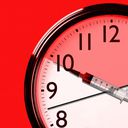Nearly half of Americans say someone in their household has delayed medical care because of the coronavirus.

Published Date: 5/27/2020
Source: axios.com
Nearly half of Americans said that either they or someone in their household has skipped or delayed needed medical care because of the coronavirus, according to new polling by the Kaiser Family Foundation. Why it matters: Shutting down elective medical care may have been necessary, particularly in coronavirus hotspots, but will have lasting effects on some patients.By the numbers: Of the 48% of Americans who said someone in their household has delayed care, 68% expect to get the postponed care within the next three months, and almost all expect to eventually get the care.But of those who postponed care, 11% told KFF that their or their family member’s condition worsened as a result.A separate survey by the American Cancer Society found that, among cancer patients in active treatment, 79% reported care delays — including 17% who reported delays to cancer therapy like chemotherapy, radiation or hormone therapy.The big picture: Cancer patients pose a particularly wrenching illustration of the coronavirus catch-22: They are particularly vulnerable to the virus, and putting them in the same facility as coronavirus patients without stringent safeguards is dangerous. But delaying care can also be dangerous.Between the lines: Not all delays are attributable to decisions made by governments or the health care system, especially as states reopen. Some patients are just too scared of catching the coronavirus to seek medical care. “Even as the number of Covid cases declines in many places, patients with cancer, heart disease and strokes, among others, are delaying or forgoing critical procedures that could keep them alive,” the NYT reported earlier this week. “And as the virus reignites in pockets of the country, people are ignoring symptoms altogether, afraid to set foot in emergency rooms or even doctors’ offices.”What we’re watching: The coronavirus is going to be a prominent part of life for awhile, and care can’t be delayed for forever. That’s why hospitals and doctors’ offices are racing to make their facilities as safe as possible for patients. And all of us are trying to figure out what life looks like with an added layer of risk.